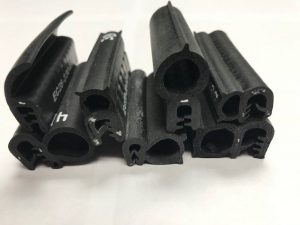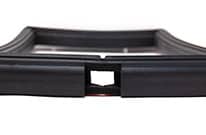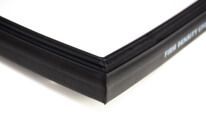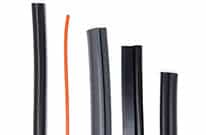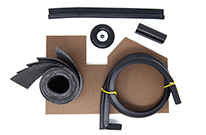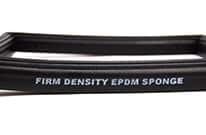Do you trust your manufacturer to look out for your best interests, communicate openly and honestly, and not make you or your company look bad? Will your manufacturer tell you “no” when it’s needed, and do you trust them to build a supply chain that’s strong enough to be an extension of your own?
These are blunt questions, but we live in tough times. These days, supply chain disruptions are so routine that they feel like business-as-usual. When the explanation to every supplier problem seems to be “It’s because of COVID”, every supplier seems the same.
Unfortunately, some experts predict that supply chain disruptions will last until 2023. Whether or not COVID will remain a pandemic (or become endemic) is anybody’s guess – and many people are unlikely to believe whatever they’ll read, hear, or see anyway.
Like most everything else, trust seems to be in short supply these days. But there isn’t a stock-out yet.
Learning to Trust Your Manufacturer
Recently, Forbes published a COVID-centric article with the provocative subtitle of Learning to Trust Your Manufacturers. The author, Javon Frazier, explains why he trusts his company’s suppliers during the pandemic. This trust wasn’t just given, of course. It was earned – and it probably didn’t happen overnight.
But how can you tell if a manufacturer deserves your trust? In part, it’s because of how you see them. “We view our manufacturers and practically everyone we do business with as partners, not as for-hire service providers”, writes Frazier. Can you say the same thing?
Consider it from a different angle. When you place an order, do you look for more than just the lowest price? Hopefully, you look for long-term, win/win partnerships instead of one-and-done deals. “The good ones will return the favor,” Frazier says of partners. But how can you be so sure?
Trust Building: It’s Not a Spectator Sport
Before COVID-19, you could visit manufacturers and see their operations for yourself. Video calls have kept communications going, but it’s hard to look for quality over Zoom. What you can do, however, is to ask yourself the hard questions about the manufacturers you do business with.
Some of the questions you’ll see below come from the Forbes article. Others come from our own experience at Elasto Proxy. Along the way, we’ll share some examples you might relate to if you buy or specify industrial rubber products. We hope this information is helpful.
Do you trust your manufacturer to look out for your best interest?
A manufacturer who values long-term business relationships has a stronger incentive to keep you happy. Otherwise, you won’t come back. Let’s say you’re designing an electronic enclosure that needs to meet the UL 94 flammability specification. You think you need a UL 94 gasket, or at least UL 94 compliant gasket material, in order to do so. How much help with your manufacturer provide?
If your supplier is an order-taker, you might not advice about material selection. In fact, your salesperson might be happy to sell you lengths of UL 94 rubber, which is more expensive than a commodity grade material. With a manufacturing partner, however, you’ll learn that you might be able to use a less expensive rubber. It depends on whether compliance is at the enclosure level or the gasket level.
The manufacturer who looks for ways to reduce your costs is one that’s worth coming back to.
Do you trust your manufacturer to be open and transparent?
A manufacturer who values long-term relationships won’t say “yes” when the answer is really “no”. By contrast, a vendor who wants your one-time business might tell you that they have the equipment, labor materials, and expertise that you need. How would you know otherwise, especially if you can’t visit their facility because of COVID-related travel restrictions?
“During the global supply chain slowdown”, Frazier writes in his article for Forbes, “the best production partners I’ve had are the ones who have told me ‘no’.” That’s because the “pushback” he received resulted in business benefits. By engaging in this type of dialog, he explains, you can “come up with a better product and, more importantly, a better long-term and financially positive business relationship”.
Is that the type of manufacturer you’d like to do business with, too?
Will your manufacturer make you and your company look bad when the product is delivered?
Good manufacturers make their customers look good. That’s true in terms of product quality. It’s also true at the personal level. If you’re a purchasing manager, the last thing you want to do is to select a bad supplier or negotiate a disastrous deal. If you’re a purchasing agent, you want to choose the best company from your available options.
Members of other departments also have own concerns. Engineers want to design quality products, but they also want to avoid getting blamed for cost overruns. If a product fails in the field, warranty work can get expensive. Rubber has different tolerances than metal, but you might not hear about that if you’re buying from someone who doesn’t provide gasket design assistance.
Would you trust your manufacturer’s suppliers if you met them?
When you direct your business to a manufacturer, you’re doing indirect business with their suppliers. These are companies you’ll never meet, especially if the supply chain is long. Yes, you could fly to distant locations, tour factories on your own, and become a student of rubber processing. The alternative is to choose an experienced and trustworthy manufacturing partner to do these things for you.
If your manufacturer is quality-driven, they choose their suppliers (and, indirectly, yours) with care. Certifications like ISO 9001:2015, AS 9100D, and a Controlled Goods certificate matter because the show your manufacturer has quality systems in place. A manufacturers who wants to work with you long-term can also leverage its buying power on your behalf if you can forecast your sales and issue a blanket P.O.
The Elasto Proxy Difference
The value you get when you do business with Elasto Proxy isn’t simply in our supply chain, or in how we offer design assistance, or in how we help you avoid over-specifying materials. It’s not even in our added-valued services like sales forecasting, warehousing, kitting, or custom packaging. Because we’re a manufacturing partner instead of a parts provider, we’ll do what it takes to earn your trust – and keep it.


